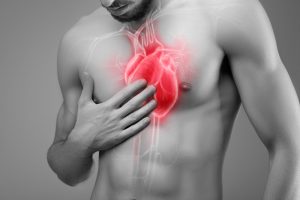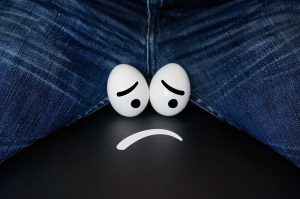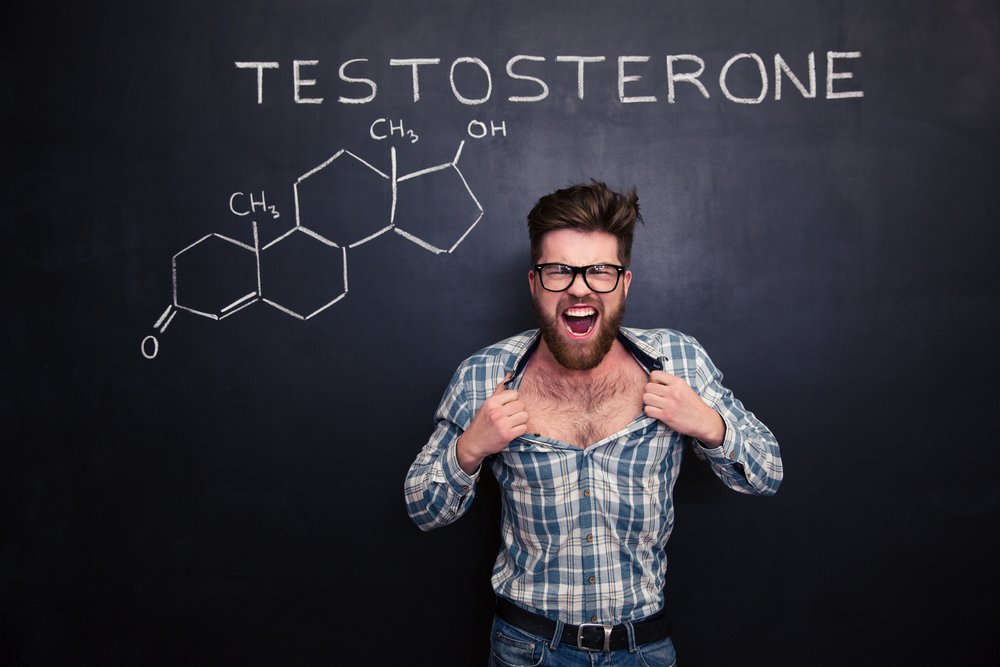Men often look for testosterone boosters since they’re known to help them with their masculinity (libido, sperm production, and development of muscle mass, among others), but how much testosterone is too much testosterone?
This hormone is produced in the testes in men and the ovaries in women -yes, the female also develop testosterone, but in very much lower levels. In adult males (ages from 19 to 49), normal “T Levels” go from 249 to 836 nanograms per deciliter (ng/dL) in their 20’s is when men reach their peak, and from ages 50 and older, the body reduces its own production, and the levels drop from 193 to 740 ng/dL.
Sometimes men start taking testosterone to boost their “manhood” (penis, hair growth, muscle mass, etc.), but it turns out their levels are normal, and they produce an unbalance when getting the “T” from supplements, which can carry health issues.
Men, bodybuilders and sometimes athletes, take anabolic steroids, a synthetic or human-made variation of testosterone, that will “help” them with muscle building and male sex characteristics or to help them in their performance, and like everything, taking these supplements can carry negative effects in the long term.
Too much is never good
Besides the acne and the swelling in hands and feet, there are some long-term effects, some of which are serious and permanent, like kidney issues and failure (long-term), or liver damage and tumors.

There are also cardiac risks of taking too much testosterone. Enlarged heart, higher blood pressure, and alterations in the blood cholesterol are common, and they all skyrocket the risks of dying of heart attacks and strokes, and that includes younger males.
When it comes to the vascular system, the anabolic steroids cause a higher risk of having blood clots.
If you are too young and start using these supplements, some of the consequences are stunted growth (because the hormones will tell your body to stop bone growth) and stunted height (if you use them before a growth spurt).
Infertility and a low sex drive are other consequences. The adult male may suffer sex organ shrinking, decrease sperm count, hair loss and breast enlargement. In the long term, prostate cancer risk is increased, and although the chances of surviving this type of cancer are good if detected in an early stage, the patient may need the removal of the prostate and will carry different treatments for life.
Stay alert! Prostate cancer is a disease that affects men over their 50’s and the risk of having it increases as they get older, so it’s highly recommended an annual visit to your urologist to run tests for an early detection whether you’ve taken anabolic steroids or not. However, don’t let the age factor deceive you. Some men can develop prostate cancer at a younger age. Check yourselves!
Men can also suffer from mental issues. While anabolic steroids are not considered addictive because they don’t cause high levels of dopamine, they can lead to negative mental effects like abnormal increased levels of jealousy. Change in male behavior, like aggressiveness, delusions, mania, and impaired judgment.
What if it’s too low testosterone?
Welp, low levels of testosterone are never good either. Men will also experience low sex drive, erectile dysfunction, depression and lack of concentration. And there are also physical changes.
An increase in body fat and a decrease in muscle mass is associated with low testosterone, just like variations in cholesterol levels, low hemoglobin or anemia, osteoporosis and a decrease in body hair.
You probably are asking yourself, how do I know if that’s happening to me? What causes it? And we’re here to help!
The causes vary but keep in mind that the body naturally starts to reduce its testosterone levels with aging, so they will drop when you are in your 40’s and so on. But if you’re in your 30’s and are experiencing some of these symptoms, it’s also proven that younger men can have low-level testosterone from that age and above.
Low testosterone levels happen due to different factors, and we list some of them for you:

- Issues with your testicles, like injury or infection, because the testosterone is produced in the testes, so if you lose one or both of them, the levels will drop too. The pituitary gland also plays an important role in the production of hormones, so any changes there, and even in the hypothalamus, will affect your “T” levels.
- Chronic illness, medications used to treat prostate cancer, chemotherapy and radiation causes a lack of “T” production.
- Stress and alcoholism won’t help your “T” levels either, just like obesity.
And the most important thing is that there’s a simple way to find out: a blood test, that’s how easy it is to find out if you are suffering from low or high testosterone levels. Ask your doctor to measure it.
Testosterone Therapy
The testosterone therapy is recommended to some men with low testosterone levels. It can be applied through intramuscular injections, gel, subcutaneous pellets, sticks and mucoadhesive material in your mouth. Also, you may consider taking natural testosterone enhancement supplement like Male Ultracore.
REMEMBER: you have to talk to your doctor before proceeding to get any type of therapy since each has its ups and downs, and they will react differently according to the patient.
Also, you have to contact your MD if you have any questions regarding your testosterone levels or if you’ve been taking any anabolic steroids because it will probably have some effects on your health.







